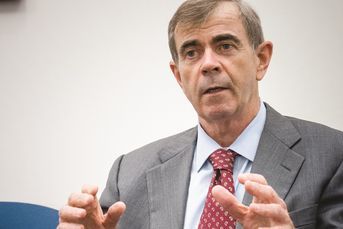Fees fell by as much as 10% last year in investment advisory services
The DOL fiduciary rule and competition from robo-advisers will continue to result in pricing pressure.
Fees are tumbling in the investment advisory services industry, and the forces putting them under pressure aren’t about to let up, according to a new survey.
The Money Management Institute and Dover Financial Research conducted the survey in which 90% of participant firms saw fee compression, with 39% saying all-in client fees for unified managed accounts had declined by as much as 6% to 10% last year. Such accounts include multiple investment products such as mutual funds, exchange traded funds and separately managed accounts.
Costs for clients will continue to fall due to more regulatory scrutiny and increased competition from robo-advisers, according to the findings. The Labor Department’s new fiduciary rule will have “significant implications on fee levels” as regulators demand greater pricing transparency, the institute said.
“In an effort to reduce conflict between brokers and clients across products and business lines, firms are expected to reduce pricing,” the firm said in the report. Also, “low-cost distribution through robo-advisers will put pressure on the more traditional distribution channels, such as financial adviser networks.”
All-in client fees averaged 1.31% for fixed-income strategies and 1.41% for equities, according to the report. Such fees include charges for investment management and advisory services.
ETFs were another factor contributing to fee compression last year.
“Financial advisers, once loath to use these products, are adopting them at a much faster rate,” the institute said. “Lower-cost passive investment products carry lower management fees.”
Investors have continued to pour money into all segments of financial advisory services, including separately managed accounts, mutual funds and ETFs, as well as fee-based services from financial advisers.
The investment advisory services industry expanded by $128 billion, or 3%, to $4.3 trillion in assets in the second quarter, with fee-based services tied to financial advisers acting as portfolio managers increasing their asset-base by 4%. Fee-based services from advisers who don’t act as money managers increased assets by 2.3%.
The DOL’s fiduciary rule, which raises the standard of advice for retirement accounts, will take effect next year. Under the new regulation, advisers must be able to demonstrate that they’re acting in their clients best interests while disclosing any conflicts of interests.
“Competitive pressures will continue,” Craig Pfeiffer, the CEO of the Money Management Institute, said by phone. “There’s an expectation of increased transparency both by the clients and by the regulators.”
Learn more about reprints and licensing for this article.






